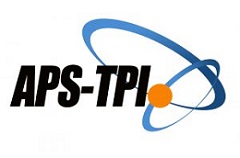Project-Based Learning for Enhancing Student Independence in Civic Education: A Qualitative Case Study in Elementary Education
Abstract
This study aims to explore how project-based learning (PjBL) can enhance student independence in civic education for fourth-grade students in an elementary school context. The research was conducted as a qualitative case study at SD Negeri 11 Martapura, involving one civic education teacher and twenty-four fourth-grade students. Data were collected through classroom observations, in-depth interviews with the teacher and selected students, and documentation of project results. The data were analyzed using Miles and Huberman’s model, which included data reduction, data display, and conclusion drawing. The findings indicate that the implementation of PjBL in civic education strengthens student independence through several dimensions: self-initiative in completing tasks, responsibility in group projects, discipline in managing time, and confidence in presenting results. Supporting factors include the teacher’s role as a facilitator, the integration of simple digital tools (such as slides and video presentations), and active parental involvement. Meanwhile, challenges faced were the limited availability of technological resources in the classroom and the varied levels of student readiness. In conclusion, PjBL effectively fosters independent learning characters in elementary civic education. From the perspective of educational technology, the model demonstrates how instructional design and the integration of simple technology can create meaningful learning experiences that support character development.
Keywords
Full Text:
PDFReferences
Alrakhman, R., Budimansyah, D., Sapriya, & Rahmat. (2024). The effect of digital citizenship on the quality learning civic education. Jurnal Civics: Media Kajian Kewarganegaraan, 21(1), 29–40. https://doi.org/10.21831/jc.v21i1.67086
Cahyono, C., Danial, E., Rahmat, R., Masyitoh, I. S., & Romli, A. D. (2024). Developing students’ civic responsibility using blended learning model with an asynchronous system. Jurnal Civics: Media Kajian Kewarganegaraan, 21(1), 1–8. https://doi.org/10.21831/jc.v21i1.67361
Creswell, J. W., & Poth, C. N. (2018). Qualitative inquiry and research design: Choosing among five approaches (4th ed.). Thousand Oaks, CA: Sage.
Diana, N., Yohannes, & Sukma, Y. (2021). The effectiveness of implementing project-based learning (PjBL) model in STEM education: A literature review. Journal of Physics: Conference Series, 1882(1), 012146. https://doi.org/10.1088/1742-6596/1882/1/012146
El Faisal, E., Safitri, S., Dianti, P., Lestari, D., & Sulkipani, S. (2024). Development of a hybrid reflective micro learning model based on ICT in micro teaching courses. Jurnal Civics: Media Kajian Kewarganegaraan, 21(1), 9–19. https://doi.org/10.21831/jc.v21i1.68070
Fitra, N. V., & Witanto, Y. (2024). Fostering democratic citizenship: Innovative approaches to improve civic values in elementary school independent curricula. Jurnal Ilmiah Pendidikan Guru Sekolah Dasar (JPGSD), 12(2), 291–301. https://doi.org/10.23887/jjpgsd.v12i2.75513
Halimah, L., Romlah, O. Y., Heryani, H., & Setiawati, L. (2024). Navigating online learning for citizenship education through parenthood in the digital era. Jurnal Civics: Media Kajian Kewarganegaraan, 21(1), 90–97. https://doi.org/10.21831/jc.v21i1.57731
Halverson, L. R., Tucker, E., & Smith, G. H. (2024). Teaching civics: An overview of instructional strategies using primary sources, role-play and simulations, and academic service learning for teaching civic knowledge, skills, and dispositions. The Social Studies, 116(4), 211–231. https://doi.org/10.1080/00377996.2024.2379908
Hanum, F. F., Murdiono, M., & Suyato, S. (2024). Innovation in civic education learning model to improve national defense skills in college students. Jurnal Civics: Media Kajian Kewarganegaraan, 21(1), 107–115. https://doi.org/10.21831/jc.v21i1.67165
Lincoln, Y. S., & Guba, E. G. (1985). Naturalistic inquiry. Newbury Park, CA: Sage.
Merriam, S. B., & Tisdell, E. J. (2016). Qualitative research: A guide to design and implementation (4th ed.). San Francisco, CA: Jossey-Bass.
Miles, M. B., Huberman, A. M., & Saldaña, J. (2014). Qualitative data analysis: A methods sourcebook (3rd ed.). Thousand Oaks, CA: Sage.
Nurhidayah, I. J., Wibowo, F. C., & Astra, I. M. (2021). Project-based learning (PjBL) learning model in science learning: Literature review. Journal of Physics: Conference Series, 2019(1), 012043. https://doi.org/10.1088/1742-6596/2019/1/012043
Palinkas, L. A., Horwitz, S. M., Green, C. A., Wisdom, J. P., Duan, N., & Hoagwood, K. (2015). Purposeful sampling for qualitative data collection and analysis in mixed method implementation research. Administration and Policy in Mental Health and Mental Health Services Research, 42(5), 533–544. https://doi.org/10.1007/s10488-013-0528-y
Rofiah, N. H., Budiyono, & Dewi, R. (2024). Learning media using pop-up book “Variety of traditional houses in Indonesia” as alternative media in Pancasila Education for primary school. Jurnal Civics: Media Kajian Kewarganegaraan, 21(1), 116–126. https://doi.org/10.21831/jc.v21i1.66211
Sakinah, N., Herwin, Kawuryan, S. P., & Bara, S. N. (2024). Group investigation learning model influence on prospective elementary school teachers’ democratic attitudes. Jurnal Pendidikan Guru Sekolah Dasar (JPGSD), 12(2), 282–290. https://doi.org/10.23887/jjpgsd.v12i2.70478
Selvi, N., & Arnidah, A. (2024). Development of E-modules for science subjects to improve learning outcomes of class VII students of SMPN 2 North Galesong Takalar District. Teknodika, 22(2), 101–109. https://doi.org/10.20961/teknodika.v22i2.87521
Sukackė, V., Guerra, A. O. P. d. C., Ellinger, D., Carlos, V., Petronienė, S., Gaižiūnienė, L., Blanch, S., Marbà-Tallada, A., & Brose, A. (2022). Towards active evidence-based learning in engineering education: A systematic literature review of PBL, PjBL, and CBL. Sustainability, 14(21), 13955. https://doi.org/10.3390/su142113955
Sunarso, S., Hidayah, Y., Firmasnyah, A., & Arpannudin, I. (2024). Content analysis of Pancasila and civic education curriculum at the junior high school level in Indonesia: Philosophical perspectives in affirming civic identity. Jurnal Civics: Media Kajian Kewarganegaraan, 21(1), 98–106. https://doi.org/10.21831/jc.v21i1.63161
Suprianto, O., Ridwan, I. R., & Sundari, N. (2024). Improving learning outcomes through the Ular Tangga Raksasa game on civic education in elementary school. Teknodika, 22(2), 110–120. https://doi.org/10.20961/teknodika.v22i2.85023
Usman, H., Suntari, Y., & Wulandari, Y. (2024). The need for the development of PjBL-based social studies E-LKPD for elementary school students. Jurnal Ilmiah Pendidikan Guru Sekolah Dasar (JPGSD), 12(2), 390–398. https://doi.org/10.23887/jjpgsd.v12i2.72170
Vidianti, A., Adesti, A., & Pebriantika, L. (2024). The effectiveness of E-modules based on problem-based learning toward student learning outcomes in educational profession courses. Teknodika, 22(2), 92–100. https://doi.org/10.20961/teknodika.v22i2.93828
Wangi, H. E., Supriyanto, T., & Trimurtini. (2024). Cultivation of social attitudes in social studies subjects for sixth grade of elementary school. Jurnal Ilmiah Pendidikan Guru Sekolah Dasar (JPGSD), 12(2), 205–215. https://doi.org/10.23887/jjpgsd.v12i2.76094
Widyalistyorini, D., Siyam, I. N., Yanti, W. F., Rezeki, I. S. T., Julianto, J., & Rahmawati, E. (2024). Overcoming misconceptions of elementary school students in energy materials and their changes using the Colorado PhET application. Teknodika, 22(2), 121–128. https://doi.org/10.20961/teknodika.v22i2.88443
Yin, R. K. (2018). Case study research and applications: Design and methods (6th ed.). Thousand Oaks, CA: Sage.
Refbacks
- There are currently no refbacks.





.png)













